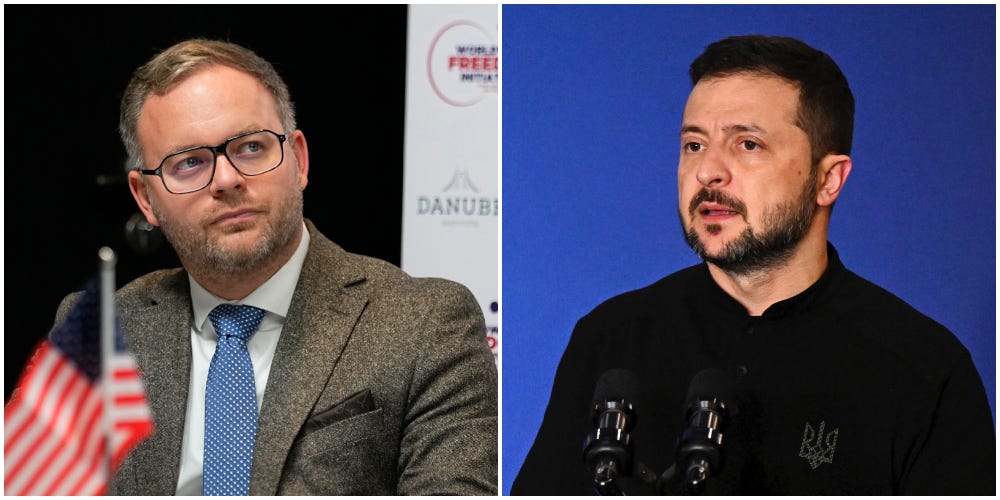A top aide to Hungarian Prime Minister Viktor Orbán has drawn criticism for suggesting that his country would not have resisted a Russian invasion like Ukraine did, multiple reports said.
Balázs Orbán, the prime minister’s highly influential political director, made the remarks on the podcast of a conservative Hungarian news magazine.
Balázs Orbán, who is also an MP, is not related to Viktor Orbán.
“We probably would not have done what President Zelenskyy did two and a half years ago, because it is irresponsible, because one can see that he took his country into a war of defense,” Balázs Orbán said, the Hungarian outlet Telex reported.



Of course it’s Hungary. What a sad state of affairs for the country whose brave resistance led to the term “tankie” being coined for the pro-Russian side.
Please tell more about how that came to.
The Hungarian uprising
Thank you!
I thought Hungary somehow perverted an old “good” denomination, that cleared it up well and good; a tankie is and has always been a soviet bootlicker.